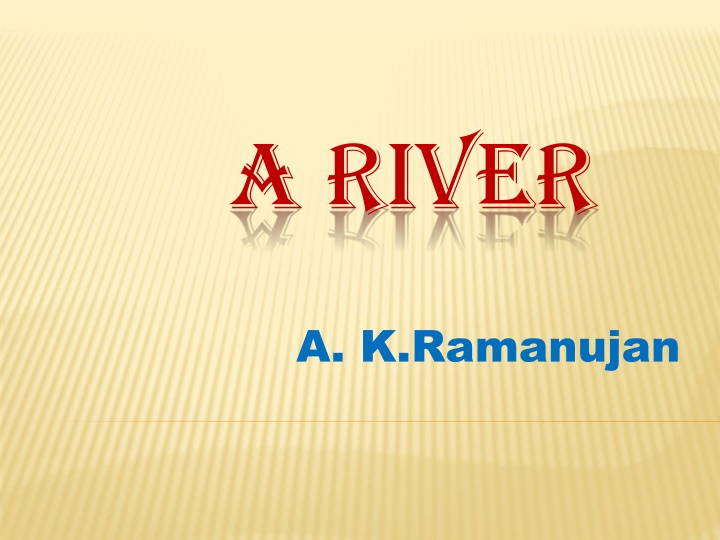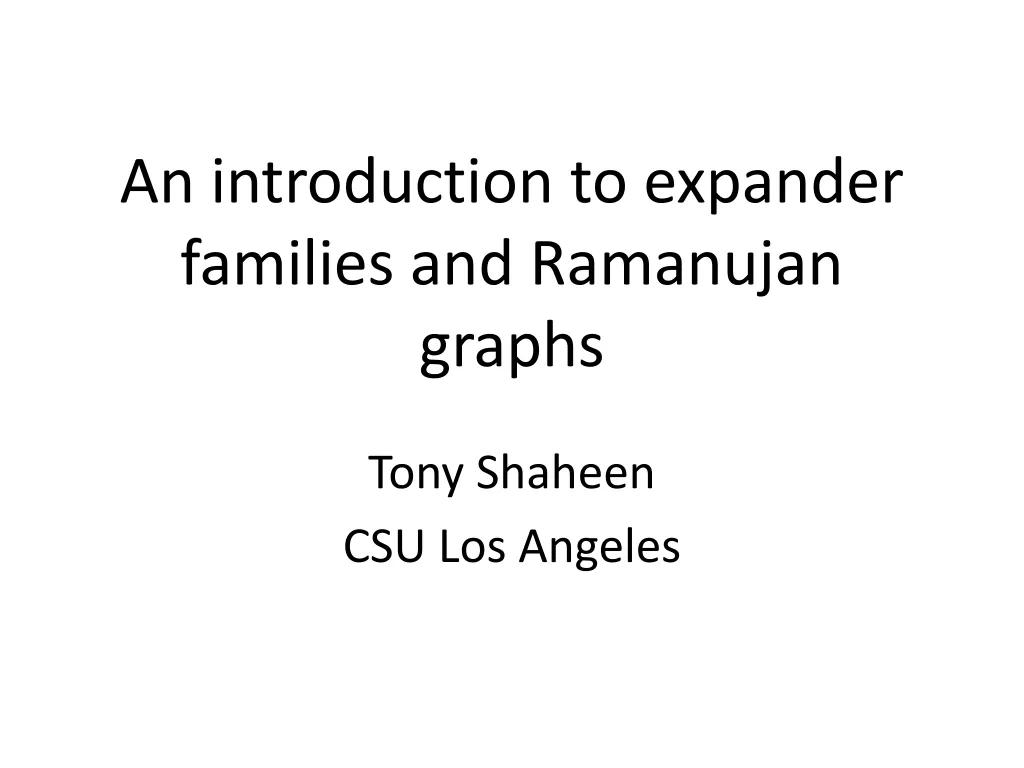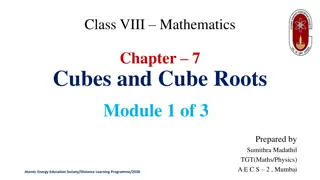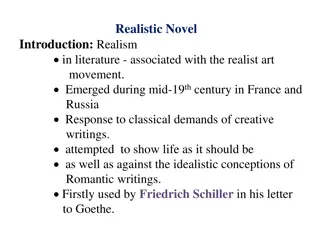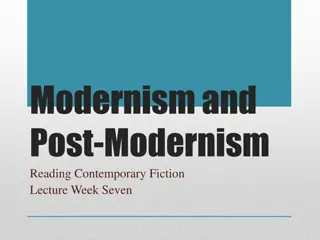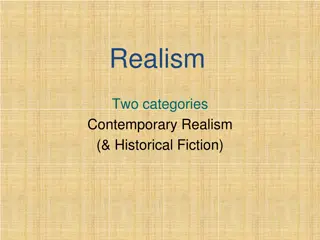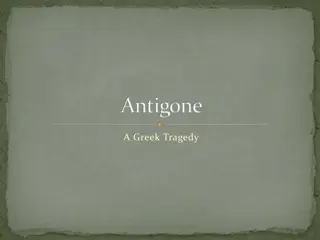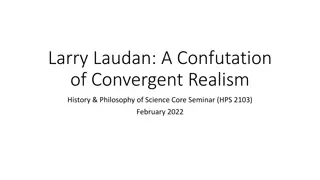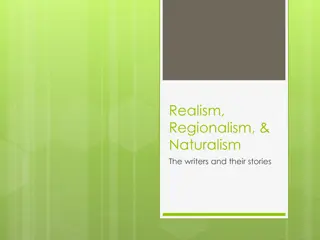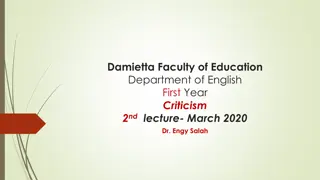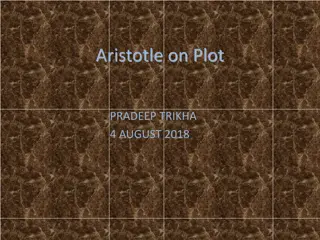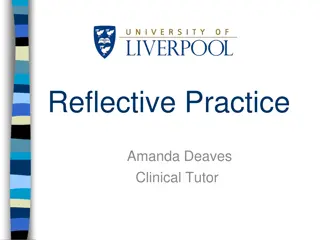A River by A.K. Ramanujan - Poetic Reflection on Realism and Tragedy
Attipate Krishnaswami Ramanujan's poem "A River" portrays a stark reality of a river in Madurai that dries up, contrasting with poets who only sing of floods. The poem criticizes traditional poetic portrayals while ironically becoming a violation of realism itself. Ramanujan's poignant verses delve deep into the tragedy and neglect surrounding the river, shedding light on the pregnant woman drowned in the floods, unspoken by newer poets. The river, while poetic once a year, swiftly takes lives and homes in a brief spell, emphasizing the harsh truths ignored by conventional poetic expressions.
Download Presentation

Please find below an Image/Link to download the presentation.
The content on the website is provided AS IS for your information and personal use only. It may not be sold, licensed, or shared on other websites without obtaining consent from the author.If you encounter any issues during the download, it is possible that the publisher has removed the file from their server.
You are allowed to download the files provided on this website for personal or commercial use, subject to the condition that they are used lawfully. All files are the property of their respective owners.
The content on the website is provided AS IS for your information and personal use only. It may not be sold, licensed, or shared on other websites without obtaining consent from the author.
E N D
Presentation Transcript
A RIVER A. K.Ramanujan
II Degree General English Poetry Prepared by V. Lydia Vedam, Lecturer in English, JMJ College For Women, Tenali. M.A., M.Ed.
Attipate Krishnaswami Ramanujan (1929-1993) was an academic and creative writer from India who was highly honored during his career. Sometimes he wrote in English, but he also wrote in the Indian language known as Kannada. His poem A River is a realistic description of a river that flows (or sometimes does not flow) through the city of Madurai. The poem implicitly comments wryly on the lack of realism with which other poets have treated the same topic. At the same time, the poem itself seems ultimately a violation of the realism it at first seems to endorse.
In Madurai, city of temples and poets, who sang of cities and temples, every summer a river dries to a trickle in the sand, baring the sand ribs, straw and women's hair clogging the watergates at the rusty bars under the bridges with patches of repair all over them the wet stones glistening like sleepy crocodiles, the dry ones shaven water-buffaloes lounging in the sun The poets only sang of the floods.
He was there for a day when they had the floods. People everywhere talked of the inches rising, of the precise number of cobbled steps run over by the water, rising on the bathing places, and the way it carried off three village houses, one pregnant woman and a couple of cows named Gopi and Brinda as usual.
The new poets still quoted the old poets, but no one spoke in verse of the pregnant woman drowned, with perhaps twins in her, kicking at blank walls even before birth.
He said: the river has water enough to be poetic about only once a year and then it carries away in the first half-hour three village houses, a couple of cows named Gopi and Brinda and one pregnant woman expecting identical twins with no moles on their bodies, with different coloured diapers to tell them apart.
Madurai of Tamil Nadu, South India is a Madurai of Tamil Nadu, South India is a holy city. It is full of temples and poets. A holy city. It is full of temples and poets. A river named river named Vaikai Vaikai flows through this city. flows through this city. The poets of ancient times as well as The poets of ancient times as well as modern times have written poems on this modern times have written poems on this city and her temples. They have also city and her temples. They have also written on the river and floods. written on the river and floods.
In the poem, we get a picture of the summer season and rainy season as well. In the summer season, the river is dry and only a very small and thin stream flows. The stream is so thin that the ribs of sand made by the flowing water are clearly visible. Every summer a lot of straw and women s hair stick to the send on the outlets in the causeway and obstruct the free flow of water. The rusty bars under the bridge have patches of repair all over them. Some of the stones on the bed of the river are dry and some of them are wet. All are clearly visible in summer, because the river is dry.
When there is flood, in the river, the people everywhere talk about the inch-by-inch rising of water and the number of stone steps submerged at the bathing place. They talk about the three village houses being washed away by the flood. They also talk about how a pregnant woman and two cows were carried away by the strong current of the river. They know that the names of the two cows were Gopi and Brinda. But no one knew the home of the women who was crying and carried off. This means that everyone was indifferent to the suffering of this woman. Even the poets did not mention her name in their poems. They wrote about the flood.
The new poets are equally indifferent to the suffering of the pregnant woman. She had probably twins in her belly, which might have kicked the walls of her womb when she was drowned in the river. They write about the two cows, the three damaged and washed away village houses. But they mention the woman casually. They do not brother to know her name or her whereabouts.
In the poem, the poet concludes that both the groups of the poets, past and present are callous and indifferent to human suffering. The poet A.K. Ramanujan has ironically exposed the heartless attitude of both the old and new poets.
